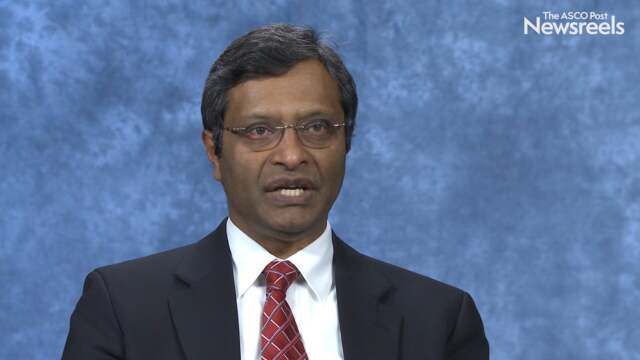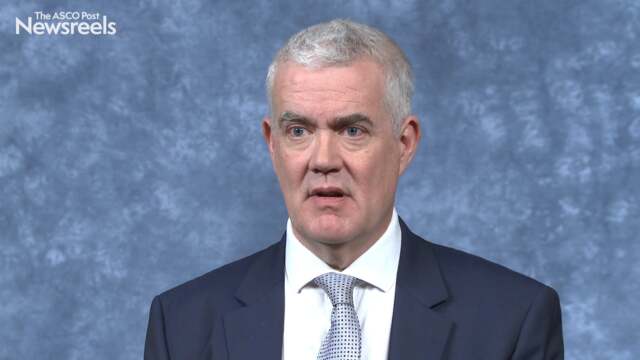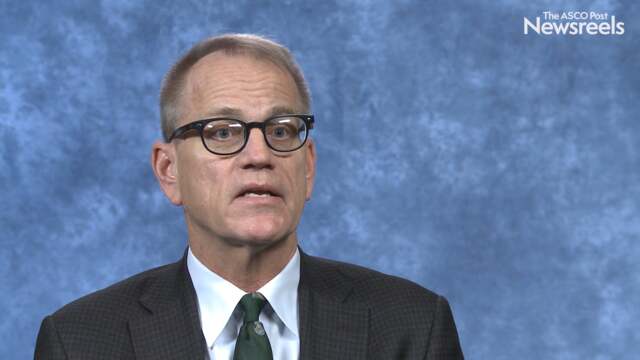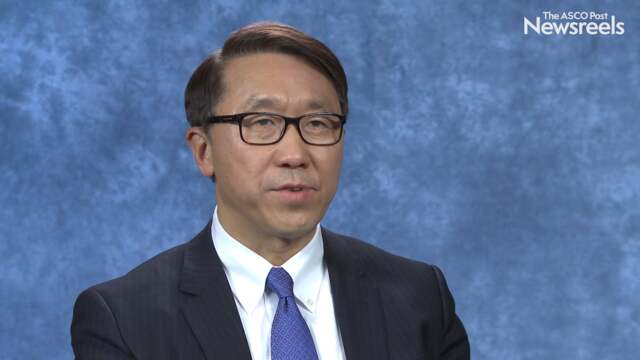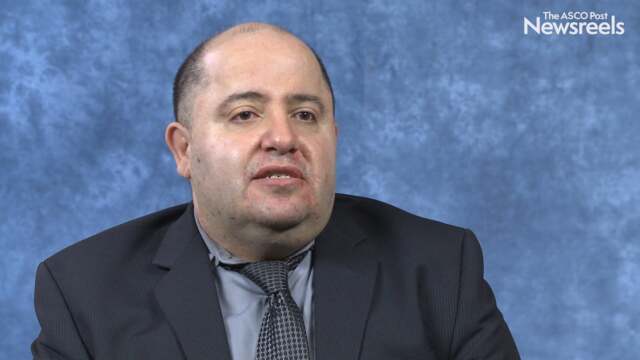Basem Azab, MD, on Esophageal Cancer: Study Survival Results
2018 Gastrointestinal Cancers Symposium
Basem Azab, MD, of the Sylvester Comprehensive Cancer Center, University of Miami, discusses the impact on overall survival when more than 2 months elapse between finishing neoadjuvant therapy and undergoing esophagectomy (Abstract 2).
Ramesh K. Ramanathan, MD, of the Mayo Clinic, discusses early-phase study findings on mFOLFIRINOX (mFFOX) plus pegylated recombinant human hyaluronidase vs mFFOX alone in patients with a good performance status (Abstract 208).
Mark Saunders, MD, PhD, of Christie Hospital, discusses study findings on tumor sidedness and the influence of chemotherapy duration on disease-free survival (Abstract 558).
Steven D. Leach, MD, of Dartmouth University’s Norris Cotton Cancer Center, discusses the personalized approach that GI cancers will require to make rational use of immunotherapy—including a subset of pancreatic cancers, which appear to be highly immunogenic and are associated with long-term survival.
Andrew X. Zhu, MD, PhD, of Massachusetts General Hospital, discusses study findings on pembrolizumab in patients with advanced hepatocellular carcinoma previously treated with sorafenib (Abstract 209).
Khaldoun Almhanna, MD, MPH, of the H. Lee Moffitt Cancer Center, discusses the long-term outcome of a phase III study that explored the significance of extensive intraoperative peritoneal lavage in addition to standard treatment for ≥ T3 resectable gastric cancer (Abstract 1).
